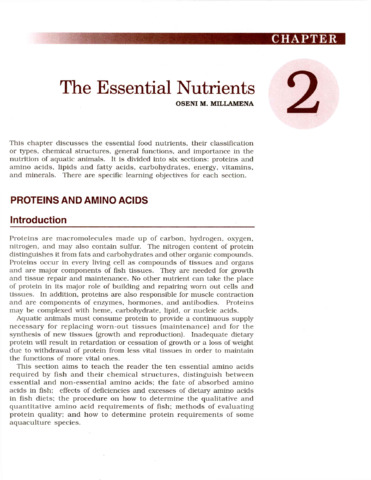Cysteine concentration regulates cysteine metabolism to glutathione, sulfate and taurine in rat hepatocytes
| dc.contributor.author | Stipanuk, Martha H. | |
| dc.contributor.author | Coloso, Relicardo M. | |
| dc.contributor.author | Garcia, Rolando A. G. | |
| dc.contributor.author | Banks, Mark F. | |
| dc.date.accessioned | 2013-02-04T09:21:53Z | |
| dc.date.available | 2013-02-04T09:21:53Z | |
| dc.date.issued | 1992 | |
| dc.identifier.citation | Stipanuk, M. H., Coloso, R. M., Garcia, R. A., & Banks, M. F. (1992). Cysteine concentration regulates cysteine metabolism to glutathione, sulfate and taurine in rat hepatocytes. The Journal of nutrition, 122(3), 420–427. | en |
| dc.identifier.issn | 0022-3166 | |
| dc.identifier.uri | http://hdl.handle.net/10862/1397 | |
| dc.description.abstract | The effect of cysteine concentration and cysteine source [cysteine, methionine or 2-oxo-thiazolidine-4-carboxylate (OTC)] on the metabolism of [35S]cysteine was studied in isolated rat hepatocytes. Production of each of the major metabolites of cysteine (glutathione, sulfate, taurine) increased as cysteine or methionine, but not OTC, concentration in the medium was increased. At equimolar exogenous substrate concentrations, cysteine availability to hepatocytes was greater from exogenous cysteine than from methionine, and that from methionine was greater than from OTC. The partitioning of cysteine, or the percentage of total metabolism resulting in production of each of the major metabolites, was markedly affected by cysteine concentration or availability. Low cysteine availability favored its utilization for glutathione; high cysteine availability favored its catabolism to sulfate and taurine. Under conditions of low cysteine availability (incubations with 0.2 mmol/L OTC), glutathione, sulfate and taurine production accounted for 90, 10 and 1%, respectively, of total metabolism. Under conditions of high cysteine availability (incubations with 1 mmol/L cysteine + bathocuproine disulfonate), glutathione, sulfate and taurine production accounted for 19, 47 and 34%, respectively, of total metabolism. Cysteine supplied as such and cysteine formed intracellularly from methionine were similarly partitioned. These studies demonstrate that methionine is not a superior substrate to cysteine for hepatic glutathione synthesis and that cysteine concentration (presumably intracellular cysteine concentration) has a major effect on the partitioning of cysteine sulfur to taurine in rat hepatocytes. | en |
| dc.language.iso | en | en |
| dc.publisher | American Society for Nutrition | en |
| dc.subject | glutathione | en |
| dc.subject | rats | en |
| dc.subject | taurine | en |
| dc.subject | thiazoles | en |
| dc.title | Cysteine concentration regulates cysteine metabolism to glutathione, sulfate and taurine in rat hepatocytes | en |
| dc.type | Article | en |
| dc.citation.volume | 112 | |
| dc.citation.issue | 3 | |
| dc.citation.spage | 420 | |
| dc.citation.epage | 427 | |
| dc.citation.journalTitle | Journal of Nutrition | en |
| seafdecaqd.library.callnumber | VF SJ 0395 | |
| seafdecaqd.databank.controlnumber | 1992-23 | |
| dc.subject.asfa | cysteine | en |
| dc.subject.asfa | coenzymes | en |
| dc.subject.asfa | chelates | en |
Files in this item
| Files | Size | Format | View |
|---|---|---|---|
|
There are no files associated with this item. |
|||
This item appears in the following Collection(s)
-
Journal Articles [1258]
These papers were contributed by Department staff to various national and international journals.


